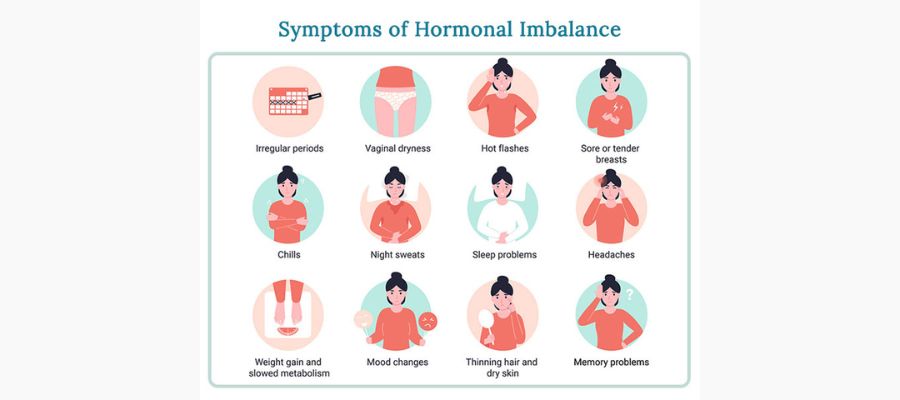
Title: Ayurvedic Herbs for Managing Irregular Menstrual Cycles in PCOS
Polycystic ovary syndrome (PCOS) is a hormonal disorder that affects many women of reproductive age. One of the most common symptoms of PCOS is an irregular menstrual cycle, which can make it difficult to predict ovulation and make it harder to conceive. However, in Ayurveda, several herbs are believed to help regulate the menstrual cycle and improve fertility. In this blog post, we will discuss using Ashwagandha, Ashoka, Shatavari, Sariva, Manjishta, and Haridra to manage irregular menstrual cycles in PCOS.
Ashwagandha:
Ashwagandha, also known as Indian ginseng, is an adaptogenic herb known to help regulate hormones and reduce stress. In Ayurveda, it is believed to be particularly effective in managing PCOS and its symptoms, such as irregular menstrual cycles. Ashwagandha is known to help balance the levels of luteinizing hormone (LH) and follicle-stimulating hormone (FSH), which are essential in regulating the menstrual cycle. It is also believed to have anti-inflammatory and antioxidant properties, which can help reduce inflammation and oxidative stress.
Ashoka:
Ashoka is a tree native to India and is commonly used in Ayurvedic medicine for its medicinal properties. In Ayurveda, Ashoka is believed to be particularly effective in managing gynaecological conditions such as PCOS. It is known to have astringent and anti-inflammatory properties, which can help reduce inflammation in the reproductive organs and regulate the menstrual cycle. Ashoka is also believed to have a calming effect on the mind and body, which can help reduce stress and anxiety.
Shatavari:
Shatavari, also known as asparagus racemosus, is a popular herb in Ayurveda known for its ability to balance hormones. It is believed to be particularly effective in managing PCOS and its symptoms, such as irregular menstrual cycles. Shatavari is known to have phytoestrogenic properties, which can help balance estrogen levels in the body. It is also believed to have anti-inflammatory and antioxidant properties, which can help reduce inflammation and oxidative stress.
Sariva:
Sariva, also known as Indian sarsaparilla, is a herb commonly used in Ayurveda for its medicinal properties. In Ayurveda, saliva is believed to be effective in managing gynaecological conditions such as PCOS. It is known to have cooling and anti-inflammatory properties, which can help reduce inflammation in the reproductive organs and regulate the menstrual cycle. Sariva is also believed to have a calming effect on the mind and body, which can help reduce stress and anxiety.
Manjishta:
Manjishta, also known as Indian madder, is a herb commonly used in Ayurveda for its medicinal properties. In Ayurveda, Manisha is believed to be effective in managing gynaecological conditions such as PCOS. It is known to have anti-inflammatory and detoxifying properties, which can help reduce inflammation and toxins in the body. Manjishta is also believed to have a cooling effect on the body, which can help regulate the menstrual cycle.
Haridra:
Haridra, also known as turmeric, is a popular spice in Ayurvedic medicine known for its medicinal properties. In Ayurveda, Haridra is believed to be effective in managing gynaecological conditions such as PCOS. It is known to have anti-inflammatory and antioxidant properties, which can help reduce inflammation and oxidative stress in the body. Haridra is also believed to have a warming effect on the body, which can help regulate the menstrual cycle.
In conclusion, Ayurveda offers a holistic approach to managing PCOS and its symptoms, such as irregular menstrual cycles. When used in the right combination and dosage, the herbs mentioned above can help regulate the menstrual cycle and improve fertility. However, it is essential to consult with a qualified Ayurvedic practitioner before using any of these herbs, especially if you are pregnant, nursing, or taking any medications.










